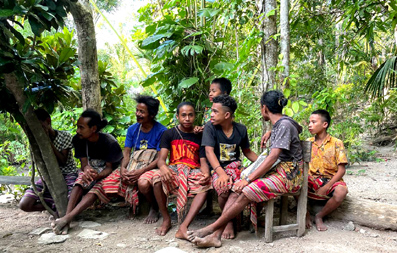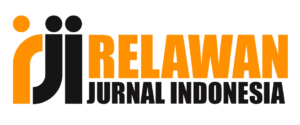Agrarian Reform and Indigenous Peoples: Land Management Practices of Boti Tribe
DOI:
https://doi.org/10.31292/mj.v2i1.27Keywords:
Indigenous people, local wisdom, ulayat land, agrarian reformAbstract
The viability of traditional tenure practices is being dealt with seriously by the privatization process. In this case, it is necessary to take sides to save the remnants of the collective heritage management of the community over shared resources, one of which appears in the context of Boti Tribe. Through Boti, the vertical redistribution model and the horizontal redistribution model can be reflected simultaneously. This vertical redistribution is related to the authority of customary leaders in regulating land tenure and use for all members of the community. Meanwhile, horizontal redistribution is related to resource management carried out among community members. This system works simultaneously and does not present feudal obligations as the base of production relationships built in the feudal hierarchical system. Boti tribe is included in the category of people who are still alive and have tribal customary land areas so that their existence can be confirmed. After receiving recognition from the local government, the identification process can be carried out by recording, measuring, and mapping. If the final product is the issuance of certificates, the only suitable protection mechanism in the case of Boti Tribe is through the issuance of communal certificates.
Downloads
References
Bedner, A., & Arizona, Y. (2019). Adat in Indonesian Land Law: A Promise for the Future or a Dead End? Asia Pacific Journal of Anthropology, 20(5), 416–434. https://doi.org/10.1080/14442213.2019.1670246
Benu, A. N., Kadati, W. D., de Kok, R., Briggs, M., Uttiridge, T., Perwani, N. M. D., Howe, J., Maduarta, I. J., Wenten, I. K., Sujata, I. K., & Cunningham, A. (2013). Tumbuhan Desa Boti dan Kegunaannya Dalam Tradisi Boti Timor Barat Indonesia. The Bebali Foundation dan Royal Botanic Garden.
Bussolo, M., Krolage, C., Makovec, M., Peichl, A., Stockli, M., Torre, I., & Wittneben, C. (2018). Vertical and Horizontal Redistribution: The Cases of Western and Eastern Europe. Vertical and Horizontal Redistribution: The Cases of Western and Eastern Europe, November. https://doi.org/10.1596/1813-9450-8657
FAO. (2021). The White / Wiphala Paper on Indigenous Peoples ’ food systems. Food And Agriculture Organization.
Fernandez, F., SU, R., & Fanggidae, A. (2012). Pengetahuan Lingkungan dan Sosial Budaya Daerah Nusa Tenggara Timur. CV Pengharapan Karya Abadi.
Fitzpatrick, D. (2010). Tanah, Adat dan Negara di Indonesia Pasca Soeharto Perspektif Seorang Ahli Hukum Asing. In J. S. Davidson, D. Henley, & S. Moniaga (Eds.), Adat Dalam Politik Indonesia. KITLV & Yayasan Pustaka Obor Indonesia.
Goldman, M. E. (2015). Domestic Conquest: Land Reform and Bounded Rationality in the Middle East. In Https://Medium.Com/. University of Washington.
Ihsan, A., & Salim, M. N. (2022). Ulayat Land and Agrarian Reform Policy in West Sumatra. Marcapada: Jurnal Kebijakan Pertanahan, 1(2), 155–171. https://doi.org/10.31292/mj.v1i2.17
Jannah, W., Salim, M. N., & Mujiburohman, D. A. (2022). Eksistensi Masyarakat Hukum Adat dan Dinamika Tanah Ulayat di Manggarai Timur. Jurnal Ilmu Sosial Dan Humaniora, 11(2).
Luthfi, A. (2019). Keberadaan Tanah Komunal di Jawa dan Perlunya Terobosan Hukum. In M. Shohibuddin, A. Luthfi, & W. Utami (Eds.), Meninjau Ulang Pengaturan Hak Adat. STPN Press.
Malak, S. (2006). Kapitalisasi Tanah Adat. Yayasan Bina Profesi Mandiri.
Mujiburohman, D. A., & Mujiati, M. (2019). Persoalan Tanah Ulayat Suku Masyarakat Hukum Adat di Provinsi Nusa Tenggara Timur. In Eksistensi, Perubahan dan Pengaturan Tanah Ulayat/Adat di Indonesia Kajian Kasus di Sumatera Barat, Bengkulu, Nusa Tenggara Timur, Maluku dan Kalimantan Tengah. STPN Press.
Pujiriyani, D. W. (2021). Agrarian Culture and Javanese Attachment to Their Land: A Study of Local Wisdom Values in Javanese Proverbs. Mozaik Humaniora, 20(2), 120. https://doi.org/10.20473/mozaik.v20i2.21448
Rachman, N. F. (2019). Quo Vadis Pengaturan Status Masyarakat Hukum Adat Pasca Putusan MK 35/PUU-X/2012? In Meninjau Ulang Pengaturan Hak Adat (pp. xxv–xxxi). STPN Press.
Sembiring, J. (2018). Dinamika pengaturan dan permasalahan tanah ulayat. STPN Press.
Shohibuddin, M. (2018). Urgensi Pembaruan Tenurial yang Kontekstual dan Integratif.
Sirait, M. (2017). Inklusi, Eksklusi dan Perubahan Agraria: Redistribusi Tanah Kawasan Hutan di Indonesia (A. Choirudin, Ed.; 1st ed.). STPN Press.
Soehadi, S. (1970). Hak Ulajat dan masalahnja. Penjuluh Landreform, 1(X), 8–9.
Soekanto, S. (2011). Hukum Adat Indonesia. PT Raja Grafindo Persada.
Soemarsono, S. (1972). Kedudukan Tanah Suku dalam Hukum Pertanahan di Indonesia. Penjuluh Landreform, 11(X), 9–14.
Soetarto, E. (2019). Pidato Pembukaan Diskusi Ahli: Hak Milik Individual Tidak Selalu Merupakan Pilihan Terbaik. In Meninjau Ulang Pengaturan Hak Adat. STPN Press.
Spitz, P. (1978). Silent Violence: Famine and Inequality. International Social Science Journal, 30(4).
Tahir, P. (2002). Poverty, Feudalism and Land Reform: The Continued Relevance of Iqbal. The Pakistan Development Review, 41(4), 967–972.
Winangun, W. Y. (2004). Tanah Sumber Nilai Hidup. Kanisius.
Wiradi, G. (2000). Reforma Agraria Perjalanan yang Belum Berakhir. Pustaka Pelajar.
Zakaria, R. Y. (2018). Etnografi Tanah Adat Konsep-Konsep Dasar dan Pedoman Kajian Lapangan. Pustaka & ARC.

Downloads
Published
How to Cite
Issue
Section
License
Copyright (c) 2022 Dwi Wulan Pujiriyani, M Nazir Salim, Maya Rahelia Soinbala

This work is licensed under a Creative Commons Attribution-ShareAlike 4.0 International License.

















